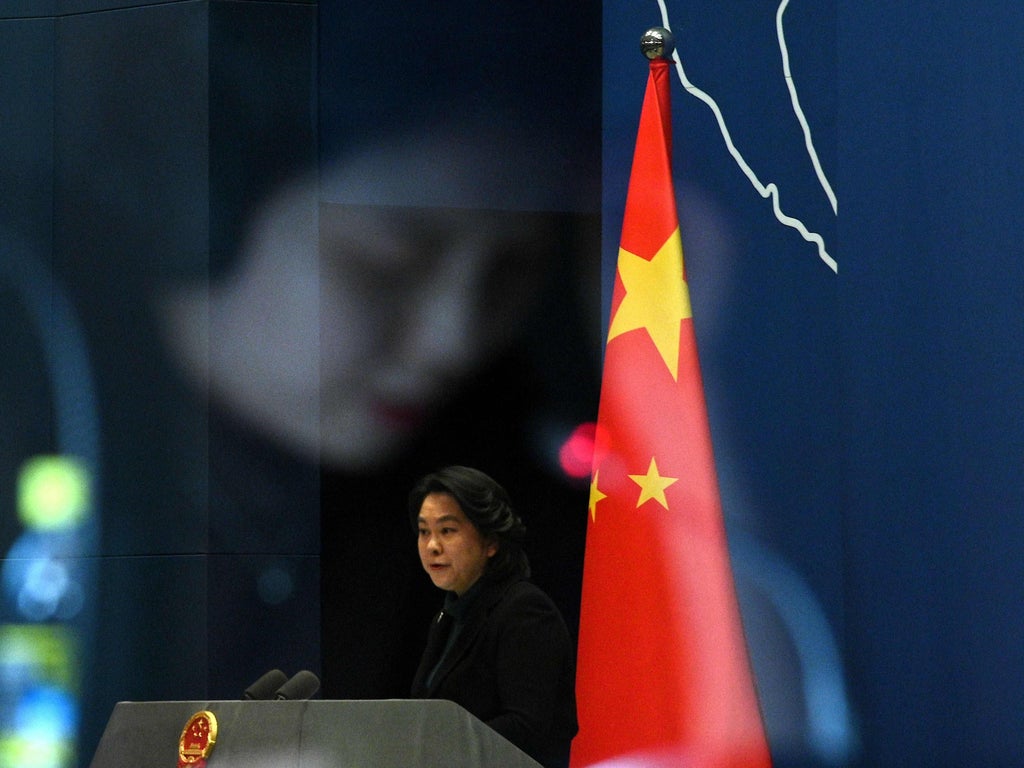
China has rejected labelling Russia’s “special military action” in Ukraine an “invasion” and has instead blamed the US for “hyping up” the prospect of war in eastern Europe amid global condemnation of Moscow’s offensive on Kiev.
In her news briefing on Thursday, China’s foreign ministry spokeswoman Hua Chunying urged “all parties” to work for peace instead of escalating tensions, deploying an oft-used reference to criticise the west during the crisis.
“China is closely following the latest developments,” Ms Hua said. “We still hope that the parties concerned will not shut the door to peace and engage instead in dialogue and consultation and prevent the situation from further escalating.”
Ms Hua appeared to skirt questions and dismissed a reporter who asked her whether Beijing considered Moscow’s action on Kiev to be an “invasion” by saying this was a typical questioning style used by western media.
The stance appeared to be in step with ally Russia, which has branded its actions in eastern Ukraine as a “special military operation”.
“All parties should work for peace instead of escalating the tension or hyping up the possibility of war,” she said.
“Those parties who were busy condemning others, what have they done? Have they persuaded others?” Ms Hua questioned. “Rather than hyping up or fanning the flames, have they done enough to prevent the development of the Ukraine situation that we are seeing today?”
In the same breath, she reiterated the need for Russian president Vladimir Putin’s “legitimate security concerns” while calling out the US for sending defence assistance to Kiev.
“The way China acts is not like the US. When we see there is a risk of a conflict, we will not take the initiative and will not provide weapons to the other side,” Ms Hua said when asked if China will be providing Moscow with military aid.
She said that Russia is a “major world power” that does not need assistance from the world.
China’s response comes as Ukraine said about 40 people have been killed so far in the first hours of Russia’s military actions in the country.
In fresh statements, the Kremlin said it will continue the “military operation” till it neutralises Kiev’s military potential.
The spokesperson’s statements were similar to the ones made on Wednesday when Ms Hua accused the west of creating “fear and panic” over the crisis and opposed new sanctions on Russia.
China and Russia have largely aligned their foreign policies to oppose the US and the two countries displayed deepening ties after Mr Putin and president Xi Jinping met earlier this month in the backdrop of the Olympics Games.
In a joint statement after the meeting, China backed Moscow’s opposition to Nato expansion in former Soviet republics as Russia buttressed Beijing’s claim to the self-governing island of Taiwan — key foreign policy issues for both nations.
Meanwhile, China has tried to avoid direct association with Mr Putin’s offensive by also recognising its concerns of Nato moving eastward so it can maintain a balancing act.
Sensing the urgency, China’s embassy in Kiev issued a warning to its citizens to stay at home or place a Chinese flag on vehicles and homes.
On Thursday, China’s customs agency approved imports of wheat from all regions of Russia, a move that could help reduce the impact of western sanctions against Moscow.
Since Russia is one of the largest wheat producers in the world, sanctions on foreign markets to block shipments will majorly affect its exports.







